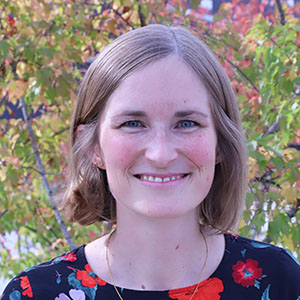Autophagy is important in the normal development of cells and organs, and dysregulated autophagy is associated with multiple diseases, such as cancer, neurodegeneration and metabolic disorders. The Scientia Fellows below work to understand the termination phase of autophagy as well as how autophagy is linked to aging.
Amani Al Outa

Country of origin: Lebanon
Host: Helene Knævelsrud
Group: Jorrit Enserink Lab
Thematic area: Autophagy
Project title: Termination of Autophagy in a Multicellular Organism
My project
Our cells need to regularly sense and respond to their nutritional status to survive. When starved, cells activate “self-eating” or “autophagy” whereby they eat their own material. This provides them with building blocks essential for their survival. If this process becomes dysfunctional diseases might arise. Most importantly, this process should also be tightly regulated; however, little is known about how autophagy is turned off, especially in a multicellular organism. To address this, I will alter genes potentially involved in the regulation of this process in cultured cells and fruit flies, so that we can understand the mechanism of how autophagy is turned off.
This project will help us understand how cells regulate the termination of an important process for cell survival in all organisms and which when defective can lead to diseases. The identification of regulators of turning autophagy “off” can lead to the development of therapeutic targets to a variety of diseases including cancer.
Miriam Formica

Group: Jorrit Enserink
Thematic area: Autophagy
Project title: Autophagy Termination: Mechanism, Regulation and Functions
My project
Autophagy (Greek for self-eating) is a mechanism used by the cells to remove unnecessary material. Dysfunctions of this process lead to tumorigenesis. Currently, how the autophagy pathway is turned off is largely unknown. Shedding light on this aspect could represent a turning point in the fight against cancer. Therefore, this project aims to elucidate how autophagy is terminated and its relevance for tumors. I will use fruit flies to perform a genetic screen to identify key regulators of autophagy termination. Then, I will evaluate the role of the candidate genes in flies and human cancer models.
Elucidating how autophagy is terminated could lead to new scientific discoveries, paving the way towards better treatments for cancer patients.
Sofie Lautrup

Country of origin: Denmark
Host: Evandro Fei Fang
Group: Evandro Fei Fang Laboratory on ‘Molecular Mechanisms of Ageing and Age-predisposed Alzheimer´s disease’
Thematic area: Molecular gerontology and neuroscience
Project title: The NAD+-mitophagy axis in senescence-induced stem cell ageing
My project
Ageing is a fundamental inevitable challenge to humans, caused by multiple factors such as dysfunctional mitochondria, senescence, and stem cell exhaustion. Mitochondria are the powerhouses of the cells while senescence (or cellular ageing) is an irreversible cellular growth arrest. During ageing the fundamental cellular metabolite NAD+ declines which is likely the cause of a series of ageing phenomena. We propose that this age-dependent NAD+ depletion is a driver of defective mitophagy, a mechanism that clears the cell for dysfunctional mitochondria; impairment of the NAD+-mitophagy axis leads to accumulation of dysfunctional mitochondria, which activate a variety of signaling pathways related to inflammation and cellular death. Impairment of the NAD+-mitophagy axis could also be a fundamental driver for both normal ageing and pathological ageing (i.e., accelerated ageing diseases as exemplified by the Werner syndrome). Different model systems, including the roundworms, fruit flies, and patient cell-oriented stem cells will be used to address these scientific questions.
This project may increase our understanding on the mechanisms of ageing, and hereby shed light on novel interventions or therapeutics to keep or increase people’s quality of life and happiness in their 70s and onwards.